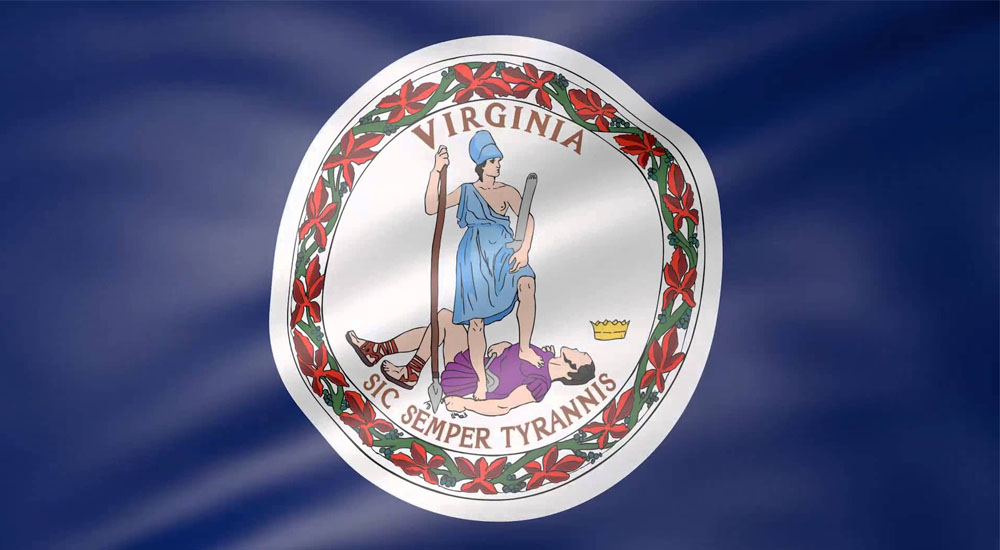Virginia Needs To Fix The Relationship With Her Localities
Dave Ress with the Daily Press offers some observations on why — when the state economy is growing — Virginia finds itself with a $1.5 billion revenue gap.
Of course, the idea that Virginia’s burden of taxation is too light strikes the casual reader as rather numb. Certainly, Virginia should be exceptional with regards to providing excellent services at maximized savings to the state and local taxpayer.
Yet the real fly in the ointment? Some of it has to do with Virginia’s antiquated method of taxation, and nowhere is this more painfully apparent than in the means Virginia allows her localities to tax landowners as permanent serfs by means of the real estate property tax. To wit:
Part of that, he said, is the way state and local governments split responsibility for key public services — with cities and counties responsible for a bigger share of the cost than is the case in other states. Virginia, for instance, ranks 39th among the states when it comes to helping its localities cover the cost of schools, according to a recent report from the Joint Legislative Audit and Review Commission, which conducts research for the General Assembly.
Short version: tax the locals more.
Yet there’s an inherent problem with this. Real estate and personal property taxes, though stable, are a grossly regressive means of taxation. Local spending for education, law enforcement, and other big ticket items are obviously key components, and so long as the attitude from Richmond is that local governments need to “pay their own way” then the problem of co-funding core responsibilities inevitably mandates tax increases at the local level on homes and vehicles — an increased cost that pushes the American dream further and further away.
Something to consider as a key economic indicator? Small vehicle registration. In a good economy, when a family feels secure? They are going to put the marker down for a 5-year investment in a new car. When they don’t? They drive the old clunker around for another year. In Virginia, our means of taxing personal property still puts people at a distance, and if the Virginia General Assembly ever chooses to roll back property tax reimbursement to the localities during a budget cycle? The impact would be horrendous, not to mention a deterrence to major purchases.
That’s not to say that Virginia could singlehandedly tank an economy… but if one decision cascades into another, small things such as these that prevent Virginians from participating in prosperity should be noted — people do indeed fall through that gap when the bi-annual tax bill comes in.
Ress notes that Virignia’s income tax is a pretty tough pill to swallow:
Relatively speaking, income taxes hit Virginians hard. Virginia ranks 19th in terms of the share of personal income going for state income taxes, ahead of notoriously tax-and-spend New Jersey and not too far behind Illinois.
That reflects the low threshold for the top rate, and Virginia’s low personal exemption — $930 per person. Maryland’s top rate, also at 5.75 percent, kicks in for incomes of more than $250,000. Maryland’s personal exemption is $3,200.
So what are the grand solutions?
First, local governments should be asked to maintain core services and nothing more. That includes public safety, zoning, land use, parks and recreation, and the basic functionings of local government. Full freight.
Second, the Commonwealth of Virginia has a moral imperative to live up to the responsibilities of Article VIII, Section 1 of the Virginia Constitution:
“The General Assembly shall provide for a system of free public elementary and secondary schools for all children of school age throughout the Commonwealth, and shall seek to ensure that an educational program of high quality is established and continually maintained.“
As it stands now, Richmond calculates the amount localities contribute to local education through the Local Composite Index, an antiquated formula that determines the minimum amount that a locality is to pay for its public education system. Many localities pay well beyond this number just to keep up with the hundreds of state-imposed mandates (funded and unfunded). Rather than use the LCI as a minimum, Richmond ought to use it as a maximum required contribution — and pick up the rest of the cost of a public education themselves. Hypothetically, a 1% income tax hike would cover this and much more, while allowing a single standard of excellence to be maintained for teachers salaries, training, quality, and education.
Third, county governments ought to have the same taxing authority as cities. As mentioned before, property taxation is highly regressive… but it also has the benefit of being one of the more stable forms of taxation. For core services, this is precisely what you want to hear. While a massive overhaul in local taxation would be welcome, in all honesty this is simply not in the cards — Richmond neither has the stomach or the will for massive and enduring tax reform. So incremental changes then… and a single standard for taxation that is fair and level would be welcome.
Fourth, allow local governments to use their Planning District Commissions (PDCs) to take on big ticket items: transportation, utilities, and economic development comes to mind. Allowing PDCs to operate with the consent of local government and contract regional planning would be a tremendous jump in the right direction for places such as Norfolk and the Port of Virignia, not to mention areas such as Fredericksburg where the impact of growth is putting an increasing strain on local resources. Regional approaches to economic development are incredibly vital as well, provided they are truly regional and not hegemonic (i.e. one large locality or city consuming the vast majority of the resources).
Fifth, a moratorium (and rollback?) of state mandates to localities, particularly with an attention to public education. This is long overdue, and the treatment of Virginia localities as French-style departments — while useful for the preservation of the Dillon Rule — eats away at local initiative, and in rural localities robs them of precious resources.
Sixth, special attention must be paid towards making any new standard of state taxation equitable and fair. No Virginia grandmother should fear being evicted from her home for failure to pay taxes on a family farm. No Virginia homeowner should be made a permanent serf by paying “quit rents” on property they own. Ideally, taxation ought to come from revenue — an actual engagement in the public square and free market — rather than against assets honestly owned and honestly held. One solution? Limit property taxation to mortgages alone. Another solution would be for Richmond to assume a greater share of the responsibility (and the blame for higher taxes) rather than punting to local governments.
Seventh — a modest proposal for school choice. If a student attends K-8 public education, the local contribution should be offered as a voucher to attend any in-state school of their choice: public, charter, private, parochial, home school co-op, or post-secondary educational or vocational training. The ability to register a charter school should be issued from Richmond, not local school boards (who seem to be rigidly resistant to anything that might bust the monopoly). The requirement to attend K-8 public education helps ameliorate two concerns: (1) the idea that in a polity, we should all have the same basic background and shared experience, and (2) restores the social solidarity of the Commonwealth. Yes, it’s a halfway house, and no I’m certain neither side of the debate will entertain the idea… the alternatives being total school choice or total state control. Both sides have to recognize that vouchers are a 10 foot jump, while public education requires a higher standard other than striving for mediocrity. The best means of introducing this are allowing parents to determine the best method of education for their children while providing a single-standard of excellence from Richmond, not a balkanized approach to school funding.
Finally, if the bedrock of the Virginia economy — or any economy — is in its people, then a massive re-commitment to workforce education and small business development is critical in a changing and increasingly automated economy. Virginia ought to find the means to offer any student maintaining a 3.0 GPA or better access to Virginia’s Community College System (VCCS). Moreover, regional microfinance organizations should aggressively be linked to aspiring entrepreneurs, providing the individual small business lift that helps enable an independent working class rather than a subsidized one.
Longform thoughts. I am not convinced that tax reform is something that can be achieved without a new state constitution — something we are perhaps long overdue for. The way Virginia finances education and transportation spending is tortured at best. Medicare spending is through the roof. One really has to wonder, if the doors were thrown open to a Virginia constitutional convention, what that would look like on an operational scale and how combative it would be — full of lobbyists, wannabe patriots, “little Robespierres” and Madisonian imitators.
Still, there are small and practical things that can be done, and they ought to be pursued — even if the ideals (as fantastical as I have proposed them here) are distant at best.


